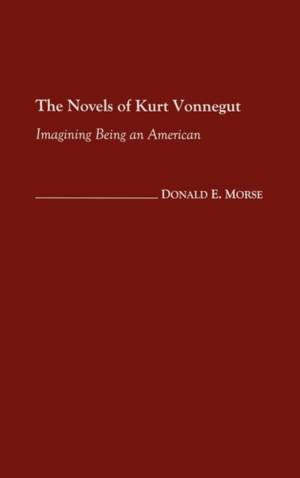
- Afhalen na 1 uur in een winkel met voorraad
- Gratis thuislevering in België vanaf € 30
- Ruim aanbod met 7 miljoen producten
- Afhalen na 1 uur in een winkel met voorraad
- Gratis thuislevering in België vanaf € 30
- Ruim aanbod met 7 miljoen producten
Omschrijving
Vonnegut belongs to what Emerson called the party of hope but hope clearly restricted to this world. This book is the first scholarly study to discuss all of Vonnegut's novels against the background of his other writing, events of the 20th century, and the vast array of Vonnegut scholarship. In his novels he speaks eloquently and succinctly for his generation of Americans--the central generation of 20th-century Americans--thus making him the representative 20th-century American writer. His novels reflect the major traumatic public and private events that have gone into imagining being an American during that century, including the Great Depression, World War II, the Bomb, Vietnam, the weakening of social institutions, the vicissitudes of marriage and family, divorce, growing old, experiencing loss, and anticipating death.
The book presents a clear, well-argued view of Vonnegut's work within the context of American literature and history. Like a majority of American writers, Vonnegut is a moralistic novelist but one who employs humor to drive home his ethical points. In many respects he most closely resembles Mark Twain not only in being a highly ethical novelist, but also in his use of comedy. His books serve a remarkable range of purposes: social commentary, theological discussion, ethical argument, parody, satire, and prophecy. His work reflects his strong belief in the dignity and worth of all individuals, and as an American pragmatist, he reminds his readers again and again of the unfinished nature of America.Specificaties
Betrokkenen
- Auteur(s):
- Uitgeverij:
Inhoud
- Aantal bladzijden:
- 232
- Taal:
- Engels
- Reeks:
- Reeksnummer:
- nr. 103
Eigenschappen
- Productcode (EAN):
- 9780313319143
- Verschijningsdatum:
- 30/07/2003
- Uitvoering:
- Hardcover
- Formaat:
- Genaaid
- Afmetingen:
- 162 mm x 243 mm
- Gewicht:
- 489 g

Alleen bij Standaard Boekhandel
Beoordelingen
We publiceren alleen reviews die voldoen aan de voorwaarden voor reviews. Bekijk onze voorwaarden voor reviews.











